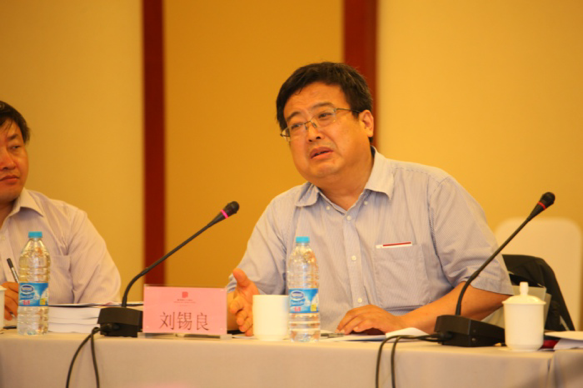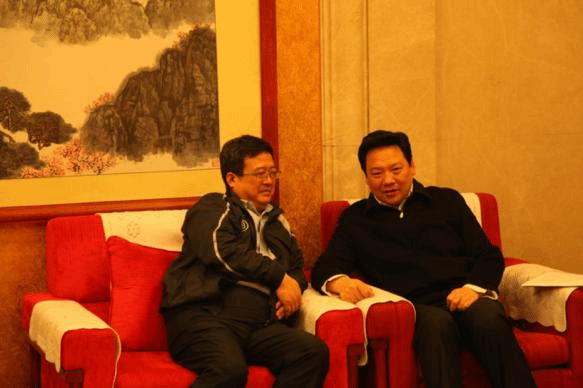On May 10th, Prof. LIU Xiliang, the Honorary Director of the Institute of Chinese Finance Studies (ICFS) of SWUFE, participated in an internal academic seminar entitled "The Mechanism Transformation and Theoretical Innovation of Macro-economic Control under the New Situation", which was co-organized by the Department of Macroeconomics of the Development Research Center of the State Council and the National Academy of Development and Strategy of Renmin University of China. The seminar was launched in the form of free speech. LIU Shijin, the Deputy Director, member of the Party Leadership Group, and a researcher of the Development Research Center of the Development Research Center of the State Council, Prof. CHEN Yulu, the President of Renmin University of China and a member of the Monetary Policy Committee of the Central Bank, and a researcher ,YU Bin,a member of the Party Leadership Group of the Development Research Center of the State Council, the Director of the General Office and Director of the Department of Macroeconomics of the Development Research Center of the State Council, and WEI Jianingi, an inspector and researcher from the Department of Macroeconomics of the Development Research Center of the State Council and etc.
At the seminar, Prof. LIU Xiliang put forward four opinions on the topic under discussion. First, the concept of western macro-economic control should not be confused with that of China's macro-economic control since the purpose of western macro-economic control is to make up for market deficiencies and the market is the dominant. However, China's macro-economic control at this stage indicates that the government intervention is the dominant and the Chinese government is reducing its interventions in constant trials. Second, to further discuss macro-economic control requires the study its corresponding micro-foundation. Only with micro-foundation compatible, can macro-economic control be effective. Third, in view of the ineffectiveness of many policies at this moment, such as PPP and government debt swaps. A thorough understanding and study concerning why the micro entities are not interested is needed. And it is of great significance to find out whether the policies meet the actual situation and correspond to the needs of micro entities. Fourth, China’s macro-economic control should go back to the spirit of the Third Plenary Session of the Eighteenth Central Committee, clearing the boundary between the government and the market, and clarifying the scope of the government’s macro-economic control.

